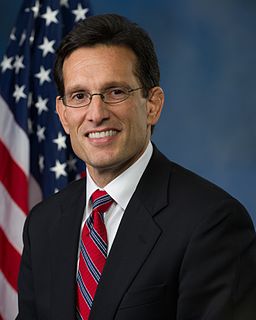A Quote by Gary Cohn
We need to get a business tax system that makes us competitive to the rest of the world.
Related Quotes
You got to remember, S corporations pay one layer of tax, corporations pay two layers of tax. So we basically see equivalent, but here`s the point. The rest of the world, they tax their businesses at an average rate in the industrialized world of 23 percent. Our corporate is 35. Our top S corporate, small business rate is 44.6 effectively. This is killing us.
We need real tax reform which makes the rich and profitable corporations begin to pay their fair share of taxes. We need a tax system which is fair and progressive. Children should not go hungry in this country while profitable corporations and the wealthy avoid their tax responsibilities by stashing their money in the Cayman Islands.
In 1990, about 1 percent of American corporate profits were taken in tax havens like the Cayman Islands. By 2002, it was up to 17 percent, and it'll be up to 20-25 percent very quickly. It's a major problem. Fundamentally, we have a tax system designed for a national, industrial, wage economy, which is what we had in the early 1900s. We now live in a global, asset-based, services world. And we need to have a tax system that follows the economic order or it's going to interfere with economic growth, it's going to reduce people's incomes, and it's going to damage the US.
The Value-Added Tax, a sales tax that applies at every level of business transactions, is an easy tax for governments to collect, and a hard tax to evade. So it makes the job of raising revenue easier. The revenues from the VAT can then be used to lower taxes on income and saving and investment. The Value-Added tax doesn't penalize work or saving; it's a tax on buying stuff.
We need an international solution to the challenge of climate change, there's no question about it. But the real key is, can you actually get that - or get that solution - without the US' involvement? Can you not lead domestically, and expect the rest of the world will take action... the US needs to lead, we need to be out there.
It certainly makes sense to expand the pulp industry in Indonesia, .. It's clear that it will be a very competitive exporter of pulp to the rest of the world, including China and India. So the interest by the Indonesian government is clearly to establish a really competitive plantation fiber base to support a globally attractive export industry.


































